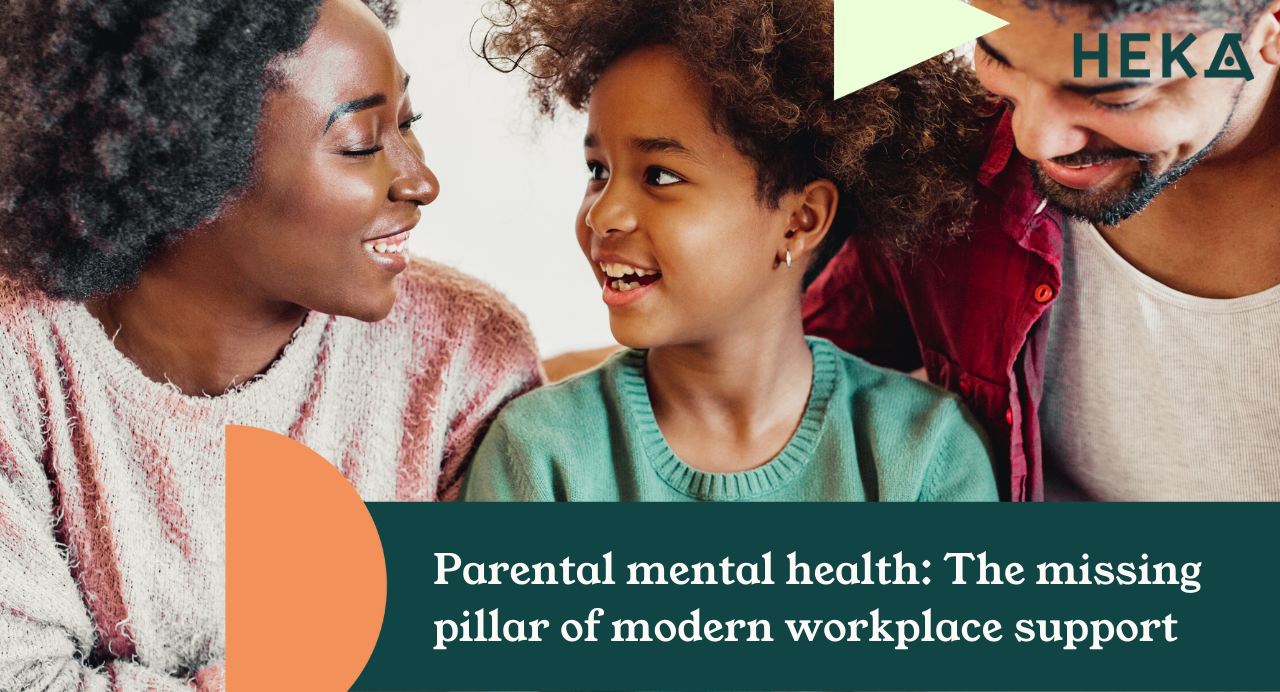A quick summary:
In the UK, paternity leave remains one of the most overlooked and under-supported areas of workplace policy. While maternity leave has seen slow and uneven progress over the decades, support for fathers is still far behind - both in policy and in culture.
This month marks a milestone in the fight for better paternity leave, with campaign group The Dad Shift launching the first-ever DadStrike, aimed at sparking a much-needed national conversation. But what exactly needs to change - and why should businesses be leading the charge?
Modern fatherhood is here and policies need to catch up
As we move through 2025, one thing is increasingly clear: more fathers want to be active, present, and engaged from day one. The role of the modern dad has shifted. Today, men are stepping forward not only as providers, but as caregivers and equal parenting partners.
Yet policies haven’t caught up. Outdated assumptions still place fathers on the sidelines - and that has real consequences.
This is no longer just about time off work. It’s about recognising the evolving role of fatherhood and creating systems that support it. When fathers are empowered to show up fully at home, everyone benefits: children, partners, workplaces, and communities.
The stark reality of paternity leave in the UK
In the UK, statutory paternity leave is just two weeks, paid at £184 per week - less than half the National Living Wage. It's one of the most limited paternity policies in Europe.
Unsurprisingly, uptake is low. Only 31.6% of eligible fathers take the leave available to them. And it's not because they don't want to - it's because they can’t afford to. In fact, 62% of fathers say they’d take more leave if the pay were higher.
This is a financial barrier disguised as choice.
Mental health is at stake
Insufficient paternity leave isn’t just inconvenient - it’s damaging. Up to 10% of new fathers experience anxiety or depression in the perinatal period. Short or inaccessible leave can intensify that risk, straining relationships and limiting bonding time with their child.
More than half of parents (56%) say their mental health suffered due to inadequate paternity leave.
Fatherhood is a transformative - and often overwhelming - life event. Businesses need to treat it with the seriousness it deserves.
The cultural stigma still lingers
Even when policies exist, a cultural stigma prevents many men from taking full advantage. There’s a fear of being seen as less committed to work, or worse - facing job insecurity.
In fact, 62% of men worry that taking shared parental leave will harm their careers. And these aren’t just fears: around 3,700 fathers lost their jobs last year after taking paternity leave.
This is not just a policy problem. It’s a workplace culture problem, too.
The new family model demands flexibility
The modern family is no longer built around a stay-at-home parent. Dual-income households are the norm, driven by economic necessity and evolving gender roles. Dads are more hands-on than ever, yet most workplace benefits haven’t kept up.
Inflexible, inadequate paternity leave leaves fathers caught between outdated expectations and a desire to show up fully at home. And increasingly, that tension is causing them to leave employers behind.
The talent war is won with people-first benefits
In 2025, attracting and retaining talent isn’t just about salary. It’s about creating policies that reflect empathy, equity, and real-world value.
More candidates are asking:
“What’s your parental leave policy?”
“Can I choose how and when I use my time off?”
Companies that answer yes - and mean it - are winning.
Shared caregiving = healthier teams
When fathers are supported in taking time off, it benefits everyone. Shared caregiving strengthens family bonds, reduces maternal burnout, and supports healthier postnatal recovery.
And the workplace benefits too. Teams return more engaged, less burnt out, and more loyal.
Research from the Centre for Progressive Policy found that countries with over six weeks of paid paternity leave have a 4% smaller gender wage gap and a 3.7% smaller workforce participation gap. Better leave isn’t just progressive - it’s proven.
Personalised support makes all the difference
In 2025, personalisation in employee benefits isn’t just appreciated - it’s expected.
For new parents, this means going beyond time off. It’s about supporting their wellbeing during that time. Think:
- Nutrition services for exhausted parents
- Massage and physical therapy
- Sleep coaching and postnatal mental health support
- Fitness plans tailored to new routines
These tools help parents not just survive, but recover and thrive. They also set the tone for a smoother return to work and a stronger employer-employee relationship.
It’s the right thing to do and it pays off
Let’s be clear: improving paternity leave isn’t a "nice-to-have." It’s smart business.
Companies that lead on progressive leave policies see:
- Higher employee satisfaction
- Improved retention
- Stronger employer branding
- Better productivity
This isn’t a cost. It’s an investment - in culture, in wellbeing, and in future-proofing your workforce.
Lead, don’t follow
2025 is the year to shift from reactive to proactive. Paternity leave should no longer be an afterthought in your HR strategy. It should be a pillar.
If you want to build a future-ready organisation, start with your people. Start with their families. Start with leave that actually leaves them feeling supported.
At Heka, we believe real change happens when we challenge outdated norms and support every parent - not just mothers - to thrive at home and at work.
It’s time to give fatherhood the support it deserves. It’s time to lead.
Join our webinar to uncover how ‘man up’ culture is making your team unhealthy and how employers can create real change. Register now to support healthier teams this Men’s Health Month.






